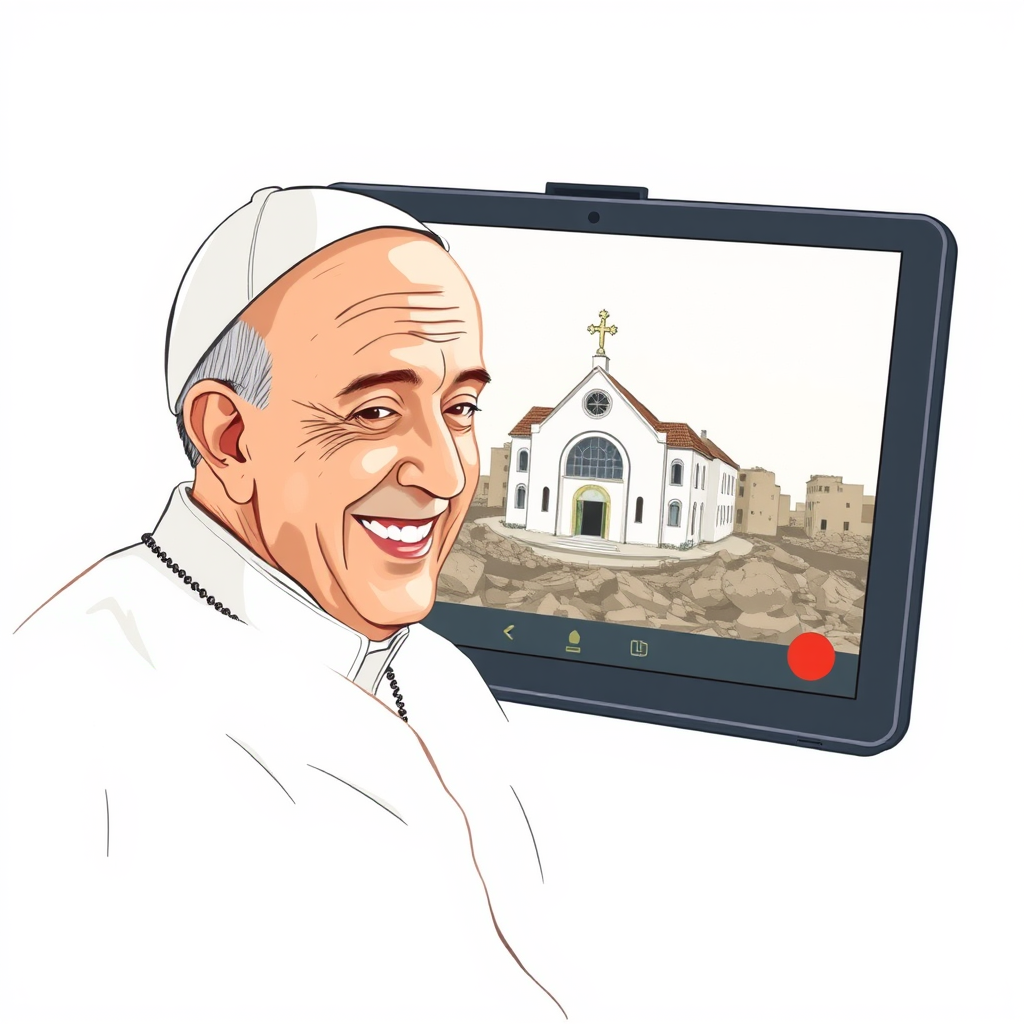Pope Francis’s Final Connection to Gaza Parish

Pope Francis, who passed away on Monday at the age of 88, maintained a remarkable and deeply personal connection with the Holy Family parish in Gaza, a small Catholic community amidst immense hardship. Throughout his pontificate, and particularly during the ongoing Israel-Hamas war, the Pope regularly called the parish, offering support and receiving updates on the dire situation faced by its congregation. This consistent outreach, beginning shortly after the conflict erupted on October 7th, became a vital lifeline for the community.
The Holy Family parish, the sole Catholic church in the Gaza Strip, serves a tiny Christian minority within a densely populated and war-torn region. Nearly 70% of structures in Gaza have been destroyed, according to UN analysis from December, making the parish a crucial source of not only spiritual guidance but also food and shelter for over 500 people.
Despite his own declining health – including a five-week hospital stay for pneumonia – Pope Francis prioritized these calls. Even from his hospital bed, as soon as he was able, he resumed checking in with Fathers Gabriel Romanelli and Youssef Asaad, the parish leaders. A Vatican-shared recording of a FaceTime call revealed the Pope inquiring about their well-being, even asking about their evening meals, and extending his concern to a local doctor and child present on the call.
The Pope’s final call to the parish reportedly occurred the weekend before his death. The consistent connection provided immense comfort to the community, as expressed by Father Gabriel, who shared his joy at receiving the Pope’s calls, even during his illness. George Antone, head of the emergency committee at the church, described the Pope as a “saint” who fought for his “small herd,” leaving behind a church that “cares for us and knows us by name.”
This consistent outreach speaks volumes about Pope Francis’s pastoral approach and his commitment to those on the periphery. In a world often dominated by geopolitical complexities, his unwavering focus on the human cost of conflict, particularly for vulnerable communities like that in Gaza, was a defining characteristic of his papacy. His calls weren’t merely symbolic gestures; they were a tangible expression of solidarity and a reminder that even in the darkest of times, hope and compassion can endure.
The Pope repeatedly called for a ceasefire in Gaza and peace in other conflict zones, most recently in his Easter message delivered by an aide due to his health. His legacy will undoubtedly include his unwavering advocacy for the marginalized and his persistent calls for peace and justice in a world desperately in need of both. The enduring connection between Pope Francis and the Holy Family parish serves as a powerful testament to the transformative power of empathy and the enduring strength of the human spirit.